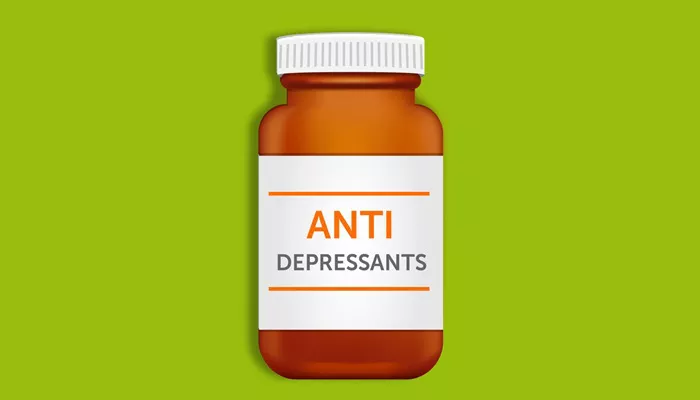Myocarditis is an inflammatory condition of the heart muscle (myocardium) that can severely affect the heart’s ability to pump blood. It can be caused by infections, autoimmune diseases, and exposure to certain drugs and toxins. Understanding which drugs can induce or exacerbate myocarditis is crucial for preventing and managing this condition. This article explores various drugs associated with myocarditis and offers insights into their mechanisms and effects on the heart.
Introduction to Myocarditis
Myocarditis involves inflammation of the heart muscle, often leading to symptoms like chest pain, fatigue, shortness of breath, and arrhythmias. The condition can result from viral, bacterial, fungal, or parasitic infections. However, drug-induced myocarditis is a significant concern, as it can complicate treatment regimens for various conditions. Recognizing drugs that can cause myocarditis is essential for healthcare providers to prevent, diagnose, and manage this potentially life-threatening condition.
SEE ALSO: How Does Myocarditis Cause Dilated Cardiomyopathy?
Mechanisms of Drug-Induced Myocarditis
Drug-induced myocarditis occurs when medications trigger an immune response or direct toxicity that leads to inflammation of the myocardium. Several mechanisms can contribute to this process:
Immune-Mediated Reactions: Some drugs can stimulate the immune system, leading to an autoimmune attack on the heart muscle.
Direct Toxicity: Certain medications have toxic effects on cardiac cells, resulting in cell damage and inflammation.
Hypersensitivity Reactions: Some drugs can cause allergic reactions that manifest as myocarditis.
Understanding these mechanisms helps in identifying which drugs are myocarditis sensitive and in developing strategies to mitigate their effects.
Which Drugs Are Myocarditis Sensitive To?
Several classes of drugs have been implicated in causing myocarditis. These include:
1. Antibiotics
Penicillins
Penicillins, commonly used to treat bacterial infections, have been associated with hypersensitivity myocarditis. The immune system may react to the drug, causing inflammation in the heart muscle.
Sulfonamides
Sulfonamides, another class of antibiotics, can cause hypersensitivity reactions leading to myocarditis. These reactions are relatively rare but can be severe.
2. Nonsteroidal Anti-Inflammatory Drugs (NSAIDs)
NSAIDs, including ibuprofen and naproxen, are widely used for pain relief and inflammation. However, these drugs can cause myocarditis through immune-mediated mechanisms. Chronic use of NSAIDs can lead to cardiovascular complications, including myocarditis.
3. Antidepressants
Tricyclic Antidepressants
Tricyclic antidepressants (TCAs), such as amitriptyline and nortriptyline, have been reported to cause myocarditis. The mechanism is thought to involve direct toxicity to cardiac cells.
Selective Serotonin Reuptake Inhibitors (SSRIs)
SSRIs, like fluoxetine and sertraline, are generally considered safer for the heart than TCAs. However, there have been isolated reports of myocarditis associated with their use.
4. Chemotherapeutic Agents
Chemotherapy drugs, used to treat various cancers, can have significant cardiotoxic effects. Several chemotherapeutic agents are known to cause myocarditis:
Anthracyclines
Anthracyclines, such as doxorubicin and daunorubicin, are well-known for their cardiotoxicity. They can cause dose-dependent myocarditis and cardiomyopathy, leading to heart failure.
Immune Checkpoint Inhibitors
Immune checkpoint inhibitors, like nivolumab and pembrolizumab, have revolutionized cancer treatment. However, they can cause immune-mediated myocarditis as an adverse effect. This type of myocarditis can be severe and requires prompt recognition and treatment.
5. Antipsychotics
Clozapine
Clozapine, an antipsychotic used to treat schizophrenia, has a well-documented risk of myocarditis. The incidence is highest in the first few weeks of treatment. Regular monitoring of cardiac function is recommended for patients on clozapine.
6. Antiepileptic Drugs
Phenytoin
Phenytoin, used to control seizures, has been associated with hypersensitivity myocarditis. Patients on phenytoin should be monitored for signs of cardiac inflammation.
7. Biologics and Monoclonal Antibodies
Infliximab and Adalimumab
Biologics, such as infliximab and adalimumab, used to treat autoimmune diseases like rheumatoid arthritis, can cause myocarditis. The mechanism is thought to involve immune system modulation leading to an inflammatory response in the heart.
Clinical Presentation And Diagnosis
The clinical presentation of drug-induced myocarditis can vary but often includes symptoms such as:
Chest Pain: Often described as sharp or stabbing, worsened by breathing or lying down.
Fatigue and Weakness: Due to reduced cardiac output.
Shortness of Breath: Especially with exertion or when lying flat.
Palpitations: Resulting from arrhythmias.
Fever: May be present if myocarditis is part of a systemic hypersensitivity reaction.
Diagnostic Tools
Diagnosing drug-induced myocarditis involves a combination of clinical evaluation and diagnostic testing:
Electrocardiogram (ECG): Can show changes indicative of myocarditis, such as ST-segment abnormalities or arrhythmias.
Echocardiogram: Provides information on heart function and structure.
Cardiac Magnetic Resonance Imaging (MRI): Useful for detecting inflammation and scarring in the myocardium.
Endomyocardial Biopsy: Can confirm the diagnosis by showing inflammation and drug-related changes in heart tissue.
Blood Tests: Including markers of inflammation (e.g., CRP, ESR) and cardiac enzymes (e.g., troponins).
Management And Treatment
The management of drug-induced myocarditis focuses on discontinuing the offending drug and providing supportive care.
Treatment strategies include:
1. Stopping the Causative Drug
Immediate discontinuation of the drug causing myocarditis is crucial. This often leads to an improvement in symptoms and prevents further damage to the heart.
2. Supportive Care
Supportive care involves managing symptoms and maintaining cardiac function:
Medications: To control symptoms like chest pain and arrhythmias. Beta-blockers, ACE inhibitors, or diuretics may be used depending on the patient’s condition.
Rest: Reducing physical activity to decrease the workload on the heart.
3. Immunosuppressive Therapy
In cases of severe myocarditis, especially those caused by immune-mediated reactions, immunosuppressive therapy may be necessary. Corticosteroids and other immunosuppressants can help reduce inflammation.
Conclusion
Understanding which drugs are myocarditis sensitive is essential for preventing and managing this serious condition.
Antibiotics, NSAIDs, antidepressants, chemotherapeutic agents, antipsychotics, antiepileptic drugs, and biologics are among the drug classes associated with myocarditis. Recognizing the symptoms, employing appropriate diagnostic tools, and providing timely treatment can significantly improve outcomes for patients with drug-induced myocarditis. Preventive strategies, including careful drug selection and patient education, are key to reducing the incidence of this potentially life-threatening condition.

